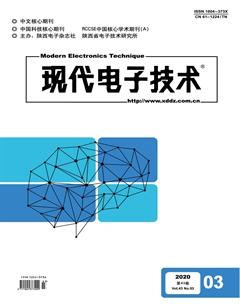RBF模型预测PID在两级AO污水 处理中的改进研究
王文成 邱胜朋 姚金峰 张寒



摘 要: 根据广西某地区的城镇污水处理厂的工艺要求和特点,设计了一套基于S7?1200PLC的自动控制系统。针对处理过程中溶氧量控制环节大滞后、大惯性特征且难以建立精确模型导致的溶氧量不稳定问题,提出使用神经网络预测模型PID算法对控制系统进行改进。由具有自学习和自适应能力的单神经元构成基本的自适应控制器NNC,同时使用基于预测输出误差的最小均方函数(LMS)进行权值和偏置调整,并采用动态RBF神经网络对模型进行在线辨识。算法验证结果表明,模型可以达到较快的收敛速度和精度,对比于传统的PID算法,该算法对于溶氧量的控制可取得更好的稳定性和动态响应。使用VB语言进行工程实现,对同类过程控制算法的设计应用有一定的参考价值。
关键词: 污水处理; 溶氧量; 神经网络; 预测控制; PLC; Wincc
中图分类号: TN876?34; TP183; TP273 文献标识码: A 文章编号: 1004?373X(2020)03?0104?05
Improvement of RBF model in prediction of PID in two stage AO sewage treatment
WANG Wencheng, QIU Shengpeng, YAO Jinfeng, ZHANG Han
(School of Mechanical and Control Engineering, Guilin University of Technology, Guilin 541006, China)
Abstract: An automatic control system based on S7?1200PLC is designed according to the technological requirements and characteristics of an urban wastewater treatment plant in Guangxi. To deal with the fact of instability of dissolved oxygen caused by large lag and great inertia of dissolved oxygen control and the difficulty in creating accurate model in the process of treatment, a neural network prediction model PID (Proportion Integral Differential) algorithm is proposed to improve the control system. The basic adaptive controller NNC (neural network controller) is composed of a single neuron with self?learning and adaptive ability. At the same time, the weight and offset are adjusted by least mean square (LMS) function which predicts the output error, and the dynamic RBF (Radial Basis Function) neural network is used to identify the model online. The verification results of the algorithm show that the model can achieve faster convergence speed and higher accuracy. Compared with the traditional PID algorithm, the algorithm can achieve better stability and dynamic response for dissolved oxygen control. The engineering implementation is performed with the VB (Visual Basic) language, which has certain reference value for the design and application of similar process control algorithms.
Keywords: sewage treatment; dissolved oxygen; neural network; prediction control; PLC; Wincc

